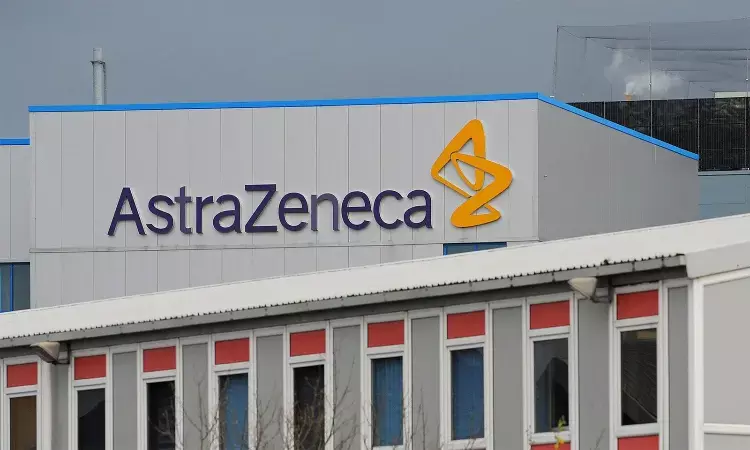- Home
- Medical news & Guidelines
- Anesthesiology
- Cardiology and CTVS
- Critical Care
- Dentistry
- Dermatology
- Diabetes and Endocrinology
- ENT
- Gastroenterology
- Medicine
- Nephrology
- Neurology
- Obstretics-Gynaecology
- Oncology
- Ophthalmology
- Orthopaedics
- Pediatrics-Neonatology
- Psychiatry
- Pulmonology
- Radiology
- Surgery
- Urology
- Laboratory Medicine
- Diet
- Nursing
- Paramedical
- Physiotherapy
- Health news
- Fact Check
- Bone Health Fact Check
- Brain Health Fact Check
- Cancer Related Fact Check
- Child Care Fact Check
- Dental and oral health fact check
- Diabetes and metabolic health fact check
- Diet and Nutrition Fact Check
- Eye and ENT Care Fact Check
- Fitness fact check
- Gut health fact check
- Heart health fact check
- Kidney health fact check
- Medical education fact check
- Men's health fact check
- Respiratory fact check
- Skin and hair care fact check
- Vaccine and Immunization fact check
- Women's health fact check
- AYUSH
- State News
- Andaman and Nicobar Islands
- Andhra Pradesh
- Arunachal Pradesh
- Assam
- Bihar
- Chandigarh
- Chattisgarh
- Dadra and Nagar Haveli
- Daman and Diu
- Delhi
- Goa
- Gujarat
- Haryana
- Himachal Pradesh
- Jammu & Kashmir
- Jharkhand
- Karnataka
- Kerala
- Ladakh
- Lakshadweep
- Madhya Pradesh
- Maharashtra
- Manipur
- Meghalaya
- Mizoram
- Nagaland
- Odisha
- Puducherry
- Punjab
- Rajasthan
- Sikkim
- Tamil Nadu
- Telangana
- Tripura
- Uttar Pradesh
- Uttrakhand
- West Bengal
- Medical Education
- Industry
AstraZeneca arm halts trial on neurological disorder treatment

New Delhi: AstraZeneca's Alexion division will stop developing a treatment for the neurological disorder ALS due to lack of efficacy in a late-stage trial, the British drugmaker said on Friday.
The halt follows a review of trial data by an independent panel and is a setback to efforts to find treatments for the rare disease, whose sufferers included late British physicist Stephen Hawking.
For AstraZeneca, which closed its $39 billion buyout of U.S. rare diseases specialist Alexion last month, the drug - branded Ultomiris - could have fetched peak annual sales of $1 billion-$4 billion for ALS and two other disorders, Shore Capital analyst Adam Barker said.
"Failure in ALS does impact that number," Barker said, noting that Ultomiris was already approved for two other conditions and AstraZeneca had "plenty of pipeline optionality within Alexion to offset clinical trial failures."
ALS, whose cause is largely unknown, weakens muscles and causes nerve cells in the brain and spinal cord to break down, affecting physical function and leading to severe disability and death.
It garnered international attention when New York Yankees player Lou Gehrig abruptly retired from baseball in 1939 after being diagnosed with ALS. The "Ice Bucket Challenge", which involved people filming themselves pouring ice-cold water over their heads as a way to raise awareness for ALS, brought the disorder back in the spotlight in 2014.
"We are disappointed by this outcome and what it means for patients with this devastating disease," Alexion's head of development and safety, Gianluca Pirozzi, said in a statement.
Roughly 12,000 to 15,000 Americans may have ALS, according to the U.S. Centers for Disease Control and Prevention. An estimated 5%-10% of ALS cases are believed to be hereditary.
Read also: AstraZeneca Pharma India net profit down 45 percent to Rs 10.24 crore in Q1
Ruchika Sharma joined Medical Dialogue as an Correspondent for the Business Section in 2019. She covers all the updates in the Pharmaceutical field, Policy, Insurance, Business Healthcare, Medical News, Health News, Pharma News, Healthcare and Investment. She has completed her B.Com from Delhi University and then pursued postgraduation in M.Com. She can be contacted at editorial@medicaldialogues.in Contact no. 011-43720751


